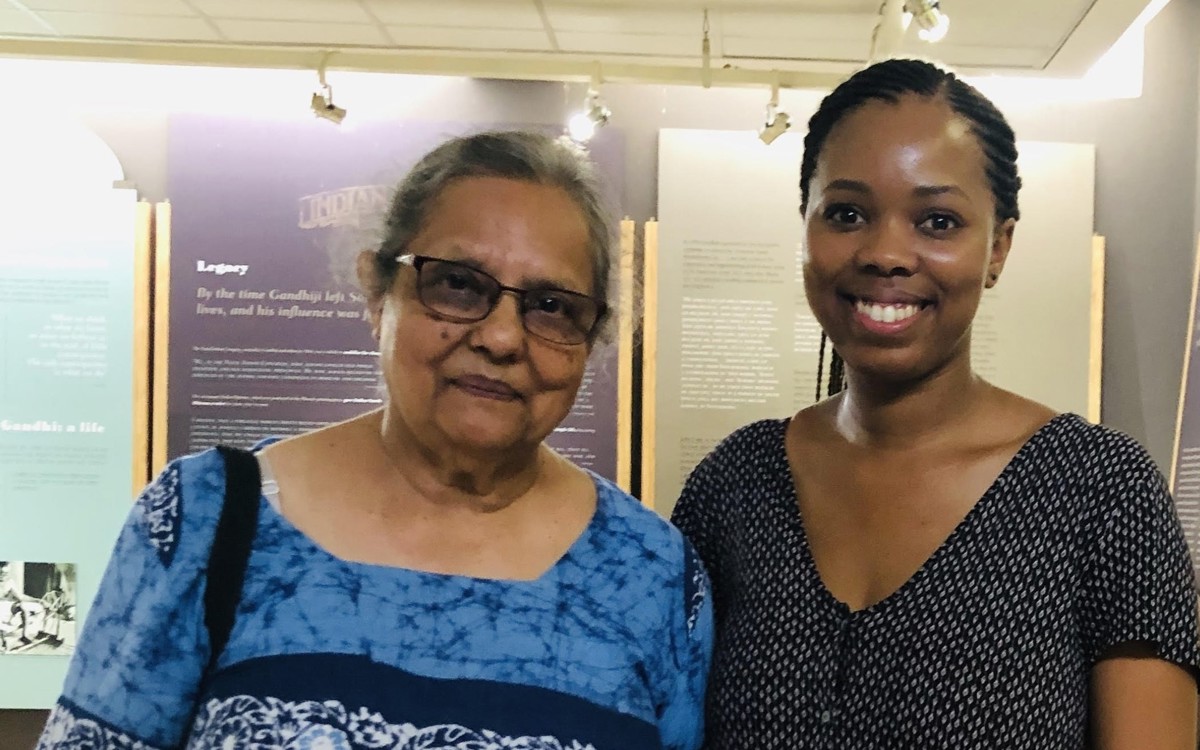

Phellecitus Thuli Montana
PhD Candidate in the School of Government and International Affairs (SGIA) at Durham University. Her PhD is centered on the politics and ethics of water security in Cape Town, South Africa, following the 2015 drought and experienced water crisis.
Violence is a pervasive global threat. The World Health Organization report that each year 1.6 million people worldwide lose their lives to violence. Women, children, and men are experiencing forms of interpersonal abuse including child maltreatment, gender-based violence, sexual harassment and neglect of the elderly, among others. These acts of visible violence impact socio-economic stability and contribute to destructive and unpeaceful livelihoods. However, violence is not an intrinsic part of the human condition. Although challenging and complex to deal with, violence can be prevented and curbed.
From 11-14 March, Durban University of Technology (DUT) hosted a workshop on ‘Reimaging Peace’ in partnership with the Association of Commonwealth Universities and the British Council. At the core of this workshop was the objective to work through conceptions of violence and non-violence, and ultimately gather collaborative insights to take forward to the Commonwealth Youth Forum in Rwanda, and the British Council’s Going Global conference in the UK.
From my personal experience, one of the most stimulating activities looked at ‘Spectrum of violence: developing a stronger conceptual grasp of what violence is’. In groups, we were provided with an envelope filled with small pieces of paper which revealed descriptions of human acts on them. We were asked to categorise each act as non-violent, a little violent, neutral and very violent.
This activity showed how our upbringings, interests and country specific knowledge adds to our understanding of violence and non-violence. Some of the challenging acts to classify in our group included eating meat, a mother telling her child she will leave them unless they behave, students protesting for affordable accommodation, parents yelling at each other and a man being hired for a job because he is stronger than a woman. Classifying these actions led to discussions about the various types of visible and invisible (or structural) forms of violence, forcing us to think deeply about where violence persists in our daily lives and how we can actively foster and enact peace.
Goal 16 of the Sustainable Development Goals (SDG) is dedicated to the promotion of peaceful and inclusive societies. Central to this SDG is the reduction of all forms of violence and related death rates worldwide, ending abuse, exploitation and trafficking against women and children, and promoting the rule of law at the national and international levels to ensure equal access to justice for all. This goal is critical for addressing not only "behavioural" violence, but also structural violence which is often unconscious. Through participating in this workshop, it was evident that young leaders can play a vital role in finding concrete solutions and strategies for building peaceful futures.
Moreover, while each of the delegates participating in this workshop have specific interests in global development, our engagements showed that peace can be meaningfully embedded in the work on climate action, gender equality, access to quality education, access to water and sanitation services, and the other global development goals.
Reimaging peace can be challenging in times of enduring violence. My reflective points on how young leaders can be the driving force behind reimagining peace includes;
- Challenging narrow conceptions of violence that may persist within our communities and institutions; violence is a multi-faceted phenomenon that impacts humans, nature and animals. Understanding its multiple forms can help in thinking through alternatives and effectively addressing its existence.
- Learning from past experiences of violence and reconciliation; intergenerational dialogues are fundamental in coming to terms with past forms of systemic, cultural and behavioural violence and addressing present day challenges of violence in order to future-proof our imaginaries of peace.
- Enhancing our understanding of peacebuilding, peace-keeping and peace-making; these are key concepts which can facilitate the process of overcoming existing conflicts across scales (community, regional, global), understanding how they can be practically implemented can support of how we reimagine peace and our specific roles in itt.
- Participating and contributing towards institutional policy reform centred on peace, inclusion and justice; seeking opportunities to voice our opinions on violence within our communities is a key way to recreate and reimagine peace. Engaging with senior management leaders and global leaders on how we envision threatening forms of violence being dealt with (i.e. gender-based violence policies within tertiary institutions) is a step towards building the peaceful societies we envision for ourselves and future generations.
More information
- Learn more about Commonwealth Futures
- Read about the Reimagining Peace workshop
